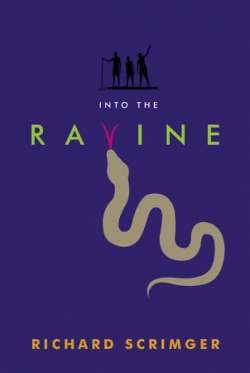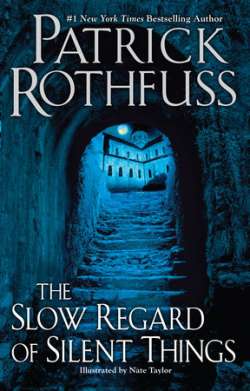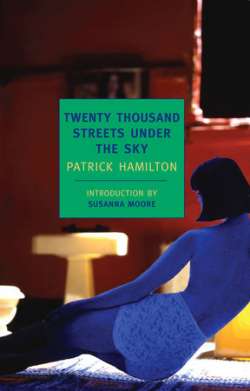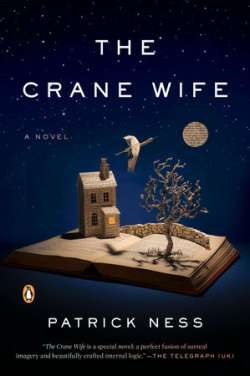« Return to all search results
Title Search Results

In the tar-melting heat of a suburban summer, everyboy Jules, athletic and handsome Chris, and oddball Corey (he laughs at gravel and anticipates zombie attacks) have lived side by side for most of their lives. Behind their backyards is a ravine through which flows a modest river. This familiar territory is by turns comforting and terrifying.When a tornado brings down a big maple tree, the boys make a raft of the branches and set off downstream. After all, at thirteen they are old enough to take a day trip by themselves. On their way, the boys meet with a series of adventures that are funny at first glance but resonate deeply. They rescue a diabolical dog, confront a hydrophobic gang, and survive a waterfall. They are bombarded by bicycles, hoodwinked by hobos, and bewitched by bikinis. By accident, they crash a funeral, and, by design, they crash a pool party — with tragic results.Urban blight and rural beauty, Into the Ravine is a journey where the geography mirrors the contradictions of the human heart. Renowned author Richard Scrimger draws on his powerful ability to tell a story that can truly make you laugh until you cry.

After years of study in Europe, the young narrator of Season of Migration to the North returns to his village along the Nile in the Sudan. It is the 1960s, and he is eager to make a contribution to the new postcolonial life of his country. Back home, he discovers a stranger among the familiar faces of childhood—the enigmatic Mustafa Sa’eed. Mustafa takes the young man into his confidence, telling him the story of his own years in London, of his brilliant career as an economist, and of the series of fraught and deadly relationships with European women that led to a terrible public reckoning and his return to his native land.But what is the meaning of Mustafa’s shocking confession? Mustafa disappears without explanation, leaving the young man—whom he has asked to look after his wife—in an unsettled and violent no-man’s-land between Europe and Africa, tradition and innovation, holiness and defilement, and man and woman, from which no one will escape unaltered or unharmed.Season of Migration to the North is a rich and sensual work of deep honesty and incandescent lyricism. In 2001 it was selected by a panel of Arab writers and critics as the most important Arab novel of the twentieth century.

Christina Milian stars as sassy cheer captain Lina Cruz, whose world is turned upside-down when her family moves from the urban streets of East Los Angeles to the sunny beach town of Malibu. At her new school, Lina clashes with Avery, the ultra-competitive all-star cheer captain, while also falling for Avery's super-cute brother, Evan.

Discover #1 New York Times-bestselling Patrick Rothfuss’ epic fantasy universe of The Kingkiller Chronicle, in this illustrated companion novella, The Slow Regard of Silent Things. “I just love the world of Patrick Rothfuss.” —Lin-Manuel Miranda • “He’s bloody good, this Rothfuss guy.” —George R. R. Martin • “Rothfuss has real talent.” —Terry Brooks Deep below the University, there is a dark place. Few people know of it: a broken web of ancient passageways and abandoned rooms. A young woman lives there, tucked among the sprawling tunnels of the Underthing, snug in the heart of this forgotten place. Her name is Auri, and she is full of mysteries. The Slow Regard of Silent Things is a brief, bittersweet glimpse of Auri’s life, a small adventure all her own. At once joyous and haunting, this story offers a chance to see the world through Aurir’s eyes. And it gives the reader a chance to learn things that only Auri knows.... In this book, Patrick Rothfuss brings us into the world of one of The Kingkiller Chronicle’s most enigmatic characters. Full of secrets and mysteries, The Slow Regard of Silent Things is the story of a broken girl trying to live in a broken world. Praise for The Kingkiller Chronicle: “The best epic fantasy I read last year.... He’s bloody good, this Rothfuss guy.” —George R. R. Martin, New York Times-bestselling author of A Song of Ice and Fire “Rothfuss has real talent, and his tale of Kvothe is deep and intricate and wondrous.” —Terry Brooks, New York Times-bestselling author of Shannara "It is a rare and great pleasure to find a fantasist writing...with true music in the words." —Ursula K. Le Guin, award-winning author of Earthsea "The characters are real and the magic is true.” —Robin Hobb, New York Times-bestselling author of Assassin’s Apprentice "Masterful.... There is a beauty to Pat's writing that defies description." —Brandon Sanderson, New York Times-bestselling author of Mistborn

Patrick Hamilton may be best known now for the plays Rope and Gaslight and for the classic Alfred Hitchcock and George Cukor movies they inspired, but in his heyday he was no less famous for his brooding tales of London life. Featuring a Dickensian cast of pubcrawlers, prostitutes, lowlifes, and just plain losers who are looking for love—or just an ear to bend—Hamilton’s novels are a triumph of deft characterization, offbeat humor, unlikely compassion, and raw suspense. In recent years, Hamilton has undergone a remarkable revival, with his champions including Doris Lessing, David Lodge, Nick Hornby, and Sarah Waters.Twenty Thousand Streets Under the Sky is a tale of obsession and betrayal that centers on a seedy pub in a run-down part of London. Bob the waiter skimps and saves and fantasizes about writing a novel, until he falls for the pretty prostitute Jenny and blows it all. Kindly Ella, Bob’s co-worker, adores Bob, but is condemned to enjoy nothing more than the attentions of the insufferable Mr. Eccles; Jenny, out on the street, is out of love, hope, and money. We watch with pity and horror as these three vulnerable and yet compellingly ordinary people meet and play out bitter comedies of longing and frustration.

After the Nazis invaded Poland in 1939, they quickly began persecuting anyone who was Jewish. Millions were shoved into ghettos and forced to live under the swastika. Death camps were built and something called "Operation Reinhard" was set into motion. Its goal? To murder all the Jews of Poland.The Commandant of Lubizec is a harrowing account of a death camp that never actually existed but easily could have in the Nazi state. It is a sensitive, accurate retelling of a place that went about the business of genocide. Told as a historical account in a documentary style, it explores the atmosphere of a death camp. It describes what it was like to watch the trains roll in, and it probes into the mind of its commandant, Hans-Peter Guth. How could he murder thousands of people each day and then go home to laugh with his children? This is not only an unflinching portrayal of the machinery of the gas chambers, it is also the story of how prisoners burned the camp to the ground and fled into the woods. It is a story of rebellion and survival. It is a story of life amid death.With a strong eye towards the history of the Holocaust, The Commandant of Lubizec compels us to look at these extermination centers anew. It disquiets us with the knowledge that similar events actually took place in camps like Bełzec, Sobibór, and Treblinka. The history of Lubizec, although a work of fiction, is a chillingly blunt distillation of real life events. It asks that we look again at "Operation Reinhard". It brings voice to the silenced. It demands that we bear witness.

"When I was a young lad twenty or thirty or forty years ago I lived in a small town where they were all after me on account of what I done on Mrs. Nugent."Thus begins Patrick McCabe's shattering novel The Butcher Boy, a powerful and unrelenting journey into the heart of darkness. The bleak, eerie voice belongs to Francie Brady, the "pig boy," the only child of and alcoholic father and a mother driven mad by despair. Growing up in a soul-stifling Irish town, Francie is bright, love-starved, and unhinged, his speech filled with street talk, his heart filled with pain...his actions perfectly monstrous.Held up for scorn by Mrs. Nugent, a paragon of middle-class values, and dropped by his best friend, Joe, in favor of her mamby-pamby son, Francie finally has a target for his rage--and a focus for his twisted, horrific plan.Dark, haunting, often screamingly funny, The Butcher Boy chronicles the pig boy's ominous loss of innocence and chilling descent into madness. No writer since James Joyce has had such marvelous control of rhythm and language... and no novel since The Silence Of The Lambs has stunned us with such a macabre, dangerous mind.

This exuberantly spooky novel, in which horror, repressed eroticism, and sulfurous social comedy intertwine like the vines in an overgrown English garden, is now a major motion picture, starring Alan Bates, Sting, and Theresa Russell.

A magical novel, based on a Japanese folk tale, that imagines how the life of a broken-hearted man is transformed when he rescues an injured white crane that has landed in his backyard.George Duncan is an American living and working in London. At forty-eight, he owns a small print shop, is divorced, and lonelier than he realizes. All of the women with whom he has relationships eventually leave him for being too nice. But one night he is woken by an astonishing sound—a terrific keening, which is coming from somewhere in his garden. When he investigates he finds a great white crane, a bird taller than even himself. It has been shot through the wing with an arrow. Moved more than he can say, George struggles to take out the arrow from the bird's wing, saving its life before it flies away into the night sky.The next morning, a shaken George tries to go about his daily life, retreating to the back of his store and making cuttings from discarded books—a harmless, personal hobby—when through the front door of the shop a woman walks in. Her name is Kumiko, and she asks George to help her with her own artwork. George is dumbstruck by her beauty and her enigmatic nature, and begins to fall desperately in love with her. She seems to hold the potential to change his entire life, if he could only get her to reveal the secret of who she is and why she has brought her artwork to him.Witty, magical, and romantic, The Crane Wife is a story of passion and sacrifice, that resonates on the level of dream and myth. It is a novel that celebrates the creative imagination, and the disruptive power of love.

"O'Brian was only 15 when [Caesar] was published, but he already possessed an instinct for deft plotting and uncomplicated narrative."―The New York TimesA stark tale encompassing the cruelty and beauty of the natural world, and a clear demonstration of the storytelling gift that would later flower in the Aubrey/Maturin series. When he was fourteen years old and beset by chronic ill health, Patrick O'Brian began creating his first fictional character. "I did it in my bedroom, and a little when I should have been doing my homework," he confessed in a note on the original dust-jacket.Caesar tells the picaresque, enchanting, and quite bloodthirsty story of a creature whose father is a giant panda and whose mother is a snow leopard. Through the eyes and voice of this fabulous creature, we learn of his life as a cub, his first hunting exploits, his first encounters with man, his capture and taming.Caesar was published in 1930, three months after O'Brian's fifteenth birthday, but the dry wit and unsentimental precision O'Brian readers savor in the Aubrey/Maturin series is already in evidence. The book combines Stephen Maturin's fascination and encyclopedic knowledge of natural history with the narrative charm of Rudyard Kipling's The Jungle Book. It was published in England and the United States, and in translation in Sweden, Norway, Denmark, and Japan.
